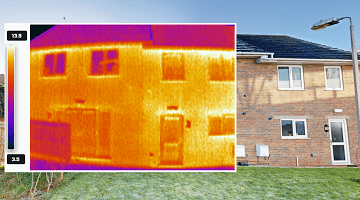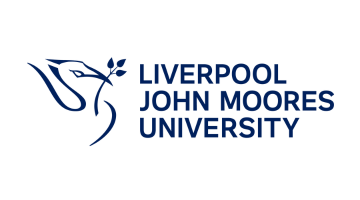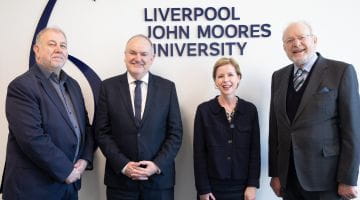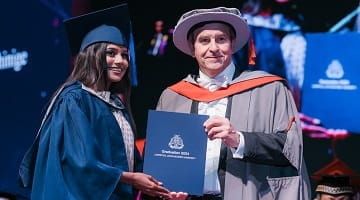About this course
LJMU's MSc in Real Estate is accredited by the RICS and is designed as a fast-rack route for first-degree holders seeking a career in Real Estate.
- Study on a course professionally accredited by the Royal Institution of Chartered Surveyors (RICS)
- Prepare for a career in Real Estate from a wide range of first degrees
- Combine academic rigour with extensive practical experience of the construction and property professions
- Benefit from extensive industry involvement from the public and private sector
- Enjoy excellent career opportunities with leading UK and international surveying firms and consultancies, property companies, developers and public sector organisations
This programme aims to provide you with the skills and attributes to gain a graduate surveyor position within the profession. It has been designed to provide you with the essential knowledge and skills to understand the role of the Real Estate professional in the valuation, appraisal, strategic management and development of commercial and residential property assets.
You will be provided with not only the technical knowledge and understanding required in practice, but also the essential practical and transferable skills required by employers, providing an excellent basis for the development of your career within the surveying profession.
The programme has a high standing both academically and professionally and the quality of the course is recognised by the Royal Institution of Chartered Surveyors which has selected LJMU as a partnering establishment for accreditation purposes.
As a student on this course you will also benefit from the Schools established research reputation. Our internationally recognised work, combined with the academic teams knowledge and experience in both practice and academia, plus extensive links with employers, ensures that our postgraduate degrees are industry-focused, globally relevant and at the forefront of knowledge development.
This course is also available with a 240 credit pathway.
Course modules
Discover the building blocks of your programme
Further guidance on modules
Modules are designated core or optional in accordance with professional body requirements, as applicable, and LJMU’s Academic Framework Regulations. Whilst you are required to study core modules, optional modules provide you with an element of choice. Their availability may vary and will be subject to meeting minimum student numbers.
Where changes to modules are necessary these will be communicated as appropriate.
Core modules
Your Learning Experience
An insight into teaching on your course
Study hours
The programme runs for a full calendar year from September to September. Teaching is two days per week full-time and one day per week part-time.
Teaching methods
You will be taught via: lectures, tutorials, problem-solving sessions, seminars, practical workshops utilising professional software applications and databases and directed student-centred learning, such as case studies.
Applied learning
The course has been developed in partnership with principal surveying practices and enjoys established links with employers in both the private and public sector, ensuring that it is responsive to the changing needs of industry, government, local communities and professional practice.
How learning is monitored on your programme
To cater for the wide-ranging content of our courses and the varied learning preferences of our students, we offer a range of assessment methods on each programme.
Assessment methods include: essay and report based assignments, unseen written examinations, the dissertation and individual and group presentations. Many students do their dissertation on topics such as: valuation, investment and management of residential or commercial real estate.
Where you will study
This programme is based in the City Campus. Besides well-equipped workshops, we have: a structural testing laboratory, a concrete laboratory, a radio frequency and microwave laboratory, a highways research laboratory, an industrial chemistry laboratory, a soil mechanics laboratory, hydraulics laboratory, surveying laboratory, light structure and materials laboratory, building information modelling (BIM) software and expertise and smart homes.
Career paths
Further your career prospects
LJMU has an excellent employability record with 96% (HESA 2018) of our postgraduates in work or further study six months after graduation. Our applied learning techniques and strong industry connections ensure our students are fully prepared for the workplace on graduation and understand how to apply their knowledge in a real world context.
Graduates of the programme have found employment with leading UK and international surveying firms, property consultancies, developers and public sector organisations.
Many employers offer excellent positions with a structured graduate training programme ensuring you will complete the full range of training required for the APC. After qualifying professionally, you may have the opportunity to become a partner in an established surveying practice or go on to run your own practice.
Some graduates have used their property expertise to follow a different property related career path with large accountancy companies, law practices and banking and insurance providers. The knowledge and skills our graduates offer has been seen as a major benefit to the overall service provided by these non-surveying organisations.
Tuition fees and funding
- Part-time per credit:
- £54.65
Fees
The fees quoted above cover registration, tuition, supervision, assessment and examinations as well as library membership and student IT support with access to printed, multimedia and digital resources including programme-appropriate software and on campus wifi.
Financial Support
There are many ways to fund postgraduate study for home and international students. From loans to International Scholarships and subject-specific funding, you’ll find all of the information you need on our specialist postgraduate funding pages. The University offers a range of financial support for students. You'll find all the information you need on our specialist financial support pages including details of the Student Support Fund and other activities to support with the cost of living.
Additional Costs
In addition to fees, students should also keep in mind the cost of:
- Accommodation
- Travel costs and field trips unless paid for by LJMU
- Stationery, IT equipment, professional body membership and graduation gown hire
Entry requirements
You will need:
Qualification requirements
How to apply
Securing your place at LJMU
To apply for this programme, you are required to complete an LJMU online application form. You will need to provide details of previous qualifications and a personal statement outlining why you wish to study this programme.
You need to demonstrate that you have a sufficient level of knowledge to embark on the programme and to complete it within the time limits. You should provide evidence, at the interview stage, of your learning capabilities and commitment to a postgraduate programme of study.
Applications from non-standard applicants are welcomed. In exceptional circumstances applications by mature healthcare practitioners without sufficient qualifications will be considered.
Your university life
From accommodation and academic support to clubs and societies. Find out what LJMU has to offer.
Related Links
Talk to our students
Connect with a current LJMU student for advice and guidance on university life, courses and more.
See what our students are saying
At LJMU we want you to know you’re making the right choice by studying with us. You can see what our students are saying about their experience with us through their reviews on the following websites:
Related Links
News and views
Browse through the latest news and stories from the university
The University reserves the right to withdraw or make alterations to a course and facilities if necessary; this may be because such changes are deemed to be beneficial to students, are minor in nature and unlikely to impact negatively upon students or become necessary due to circumstances beyond the control of the University. Where this does happen, the University operates a policy of consultation, advice and support to all enrolled students affected by the proposed change to their course or module.



























